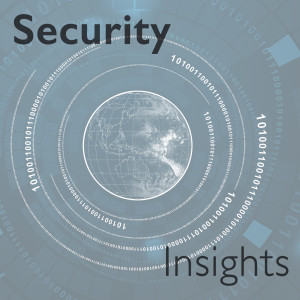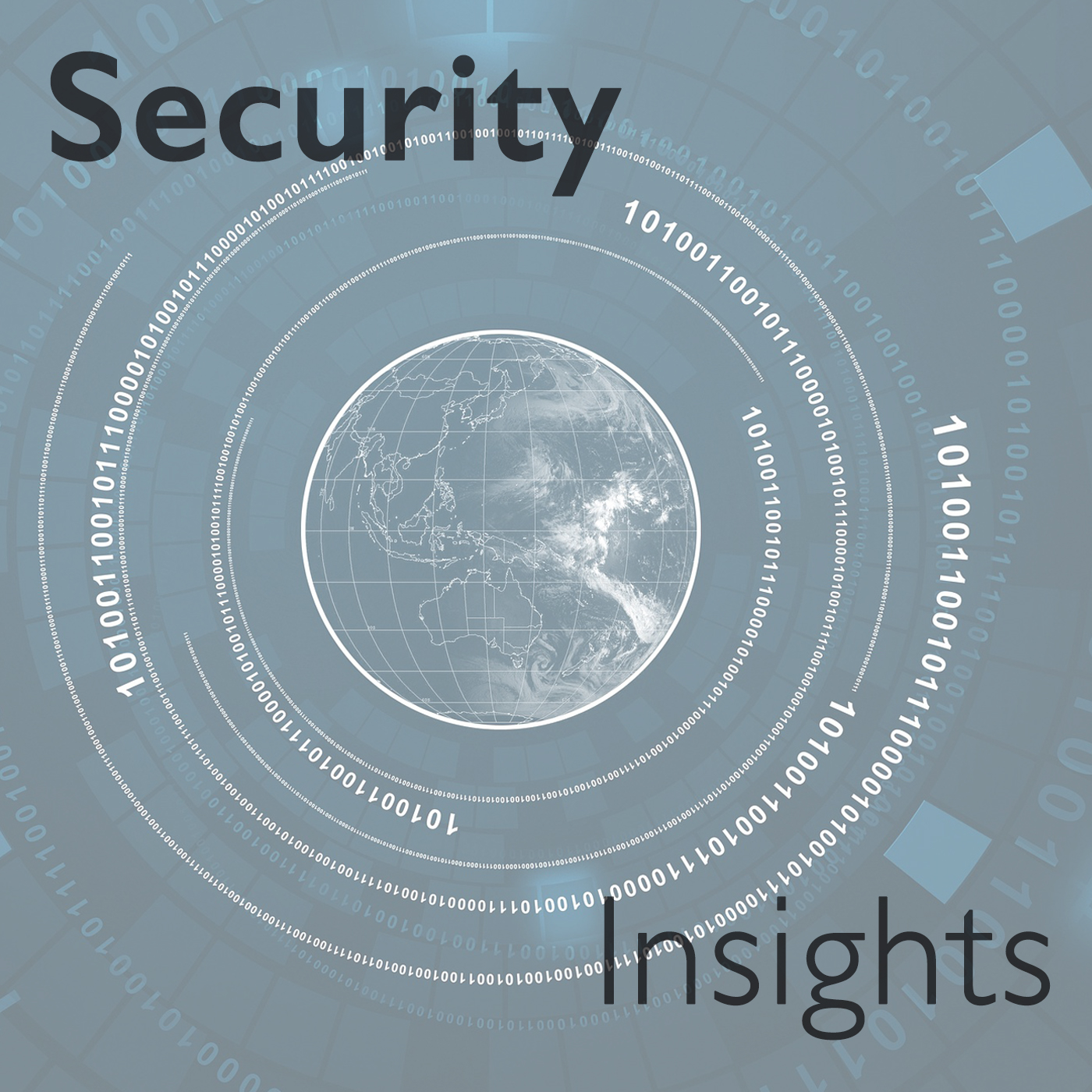Episodes

Friday Jul 05, 2024
Ransomware: can transparency bring security?
Friday Jul 05, 2024
Friday Jul 05, 2024
It's hard to put an exact figure on ransomware attacks. All the available research shows incidents continue to grow year on year, and that the vast majority of cyber incidents are now ransomware or other extortion attacks.
But could more transparency and information sharing help defend against ransomware?
If more organisations disclosed attacks, we would have a clearer picture of the problem and be able to respond more quicky to new techniques or attack vectors.
That's the argument put forward by this week's guest.
Sabeen Malik is vice president of global government affairs and public policy at Rapid7. She has put together a ransomware disclosure framework, based around the "3 Cs" of capabilities, context, and collective action.
She tells Stephen Pritchard how it works, and why it could help.

Thursday Jun 20, 2024
Cyber war: new lessons from history?
Thursday Jun 20, 2024
Thursday Jun 20, 2024
The idea of cyber war is not new; researchers first suggested the concept 30 years ago.
Since then, there's been a debate on what cyber war means and what can be done to prevent it.
Some experts even suggest cyber war is already happening, even if it is mostly in the shadows.
For Peter Kestner, the rise of cyber attacks and an increasingly volatile geopolitical situation were just two of the reasons to examine cyber warfare in more detail.
Peter is both a keen student of history, and a cybersecurity professional with over 25 years' experience in consulting in the sector.
He decided to combine the two interests, and the result is his new book, "The Art of Cyber Warfare".
Peter believes that by looking into conflicts in the past, we can learn valuable lessons about how warfare, and especially cyber warfare, might develop. But history can also teach us how to improve our defences, against adversaries who are as comfortable attacking civilian as government or military targets.
- Please note this episode contains some stronger than usual language.

Thursday Jun 06, 2024
A CISO's Journey: Mani Nagothu, SentinelOne
Thursday Jun 06, 2024
Thursday Jun 06, 2024
The CISO’s role is changing; that is clear enough.
Indeed, constant change and the need to adapt is always a feature of cybersecurity.
And that’s why our guest this week lists curiosity as one of the key attributes for a cybersecurity career.
Mani Nagothu is field CISO at SentinelOne. Before that she headed up IT security for an energy company. That followed a career as a consultant.
But she didn’t start out in cybersecurity, but as an engineer. And the CISO’s role itself is becoming less technical, and more business focused, she says.
In this episode Mani talks to Stephen Pritchard about her career so far, what it takes to be successful as a CISO, and why greater diversity is the key to strengthening our security teams, and so our defences.

Thursday May 23, 2024
Cyber on demand: filling the skills gap?
Thursday May 23, 2024
Thursday May 23, 2024
The cybersecurity skills gap is a problem that won't go away.
Worldwide, there are close to 3.5 million vacancies in the industry. The problem seems to be worsening, not least because we are all doing more business online.
And moves to recruit and retain more staff, as well as to widen the talent pool, take time.
In the immediate term this leaves CISOs with gaps to fill. One option is outsourcing. Another is to use “on demand” cyber specialists. But how do these options work with building larger and more effective in-house teams?
Do they go hand in hand, or are the two measures likely to conflict?
In the second of the second of our three part series looking at the evolution of the CISO role, we speak to Victoria Parker, advisory professional services manager at Orange CyberDefense.
We discuss how external experts can help organisations secure their environments now - but how CISOs still need to invest in their own teams, and that critical talent pipeline.

Thursday May 09, 2024
Chief Business Security Officers: a CISO's new ally?
Thursday May 09, 2024
Thursday May 09, 2024
What is a chief business security officer, and what do they do?
IT and data security are increasingly important. But so too are physical security and resilience.
The chief business security officer, though, is a fairly new addition to the security team.
Over the next three episodes of the Security Insights podcast, we’ll look at the changing role of the CISO, the role interim or outsourced security professionals can play in plugging the skills gap.
We’ll cover the role of interim and virtual CISOs, and whether outsourcing parts of security can make up for a growing skills gap.
But first, we ask Anaïs Beaucousin, Chief Business Security Officer at ADP International, about her role, the threats and risks she manages, and what is needed to make the most of a broader security team.

Thursday Apr 25, 2024
Ransomware: should payments be banned?
Thursday Apr 25, 2024
Thursday Apr 25, 2024
Ransomware now accounts for the vast majority of cyber attacks.
But regulators and law makers are increasingly concerned about the money being paid out to ransomware groups -- often, it is used to fund further crime.
Should paying ransoms be banned? Would a ban improve security, or make matters worse? And what steps can organisations take, to cut the risk of falling victim to a ransomware attack in the first place?
Our guest this week is Ian Thornton Trump, CISO at Cyjax. He believes that calls to ban ransomware are misplaced; a ban gives firms fewer options when it comes to responding to an attack. And fines for paying ransoms is further punishing victims of cybercrime.
He discusses the development of ransomware, why it is so dangerous, and how to counter it with Stephen Pritchard.

Thursday Apr 04, 2024
Cloud security: an identity problem
Thursday Apr 04, 2024
Thursday Apr 04, 2024
In this episode, we look at why a lack of robust identity controls are one of the biggest causes of cloud security failures.
Cloud operators, at least the larger ones, now have robust security in place. But that security is there, first and foremost, to protect their business. The "shared responsibility model" means that users are responsible for their data and applications.
The problem, as our guest this week identifies, is that senior managers fail to understand that point, and expect the cloud to fix everything.
It won't, and as Jennifer Cox, member of the global engineering team at Tenable, and director for Ireland of Women in Cybersecurity, warns "it always makes me a bit nervous when people think that something is foolproof".

Thursday Mar 21, 2024
The end of passwords?
Thursday Mar 21, 2024
Thursday Mar 21, 2024
Are passwords now a security risk? And if they no longer work, what should replace them?
In this episode, we speak to https://www.linkedin.com/in/johncapps/ at VIDA Digital Identify, and Ev Kontsevoy, CEO of infrastructure access firm Teleport.
They argue that relying on "secrets" and data to prove identity no longer guarantees security. Alternatives, including zero trust, hold out a lot of promise. But moving to zero trust needs the whole organisation behind it -- it's as much about culture as technology.

Thursday Mar 07, 2024
Critical National Infrastructure: changing threats
Thursday Mar 07, 2024
Thursday Mar 07, 2024
How are the threats to critical national infrastructure evolving, and how do we counter them?
And are we seeing a shift from attacks based on data and ransomware, towards disruption.
In this episode, we welcome back a previous guest, Trevor Dearing.
Trevor is Director of Critical Infrastructure at Illumio.
Trevor’s work is increasingly focused on resilience, and helping organisations to survive and recover from attacks.
We discuss how organisations in the CNI space need to improve their ability to react to, and survive, a cyber attack.
After all, a failure to do so could cause widespread economic and social disruption.

Thursday Feb 22, 2024
DORA: one year to go
Thursday Feb 22, 2024
Thursday Feb 22, 2024
The EU’s Digital Operational Resilience Act, or DORA, comes into force in January 2025. So there is not much time for affected organisations to prepare.
DORA sets out to improve cybersecurity — or ICT risk management — across the EU’s financial services sector.
The Act covers both regulated firms and what the EU terms “critical third parties” in their supply chains. In fact managing third party risk is a big part of DORA, along with measures such as improved resilience testing, incident management plans, and strict reporting requirements.
Our guest is DORA expert and director of consulting firm SECFORCE Rodrigo Marcos.

